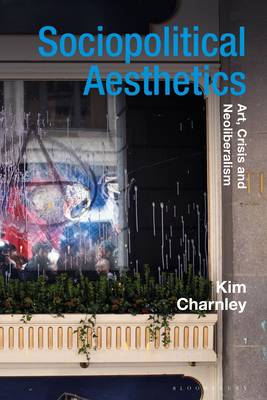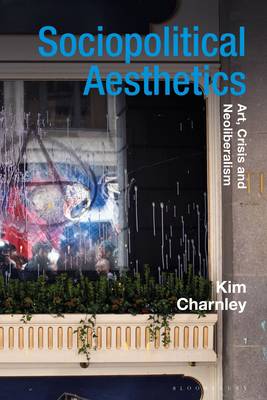
Bedankt voor het vertrouwen het afgelopen jaar! Om jou te bedanken bieden we GRATIS verzending (in België) aan op alles gedurende de hele maand januari.
- Afhalen na 1 uur in een winkel met voorraad
- In januari gratis thuislevering in België
- Ruim aanbod met 7 miljoen producten
Bedankt voor het vertrouwen het afgelopen jaar! Om jou te bedanken bieden we GRATIS verzending (in België) aan op alles gedurende de hele maand januari.
- Afhalen na 1 uur in een winkel met voorraad
- In januari gratis thuislevering in België
- Ruim aanbod met 7 miljoen producten
Zoeken
€ 169,95
+ 339 punten
Uitvoering
Omschrijving
Since the turn of the millennium, protests, meetings, schoolrooms, reading groups and many other social forms have been proposed as artworks or, more ambiguously, as interventions that critique art's autonomy. The historical origins of these practices can be traced back to the avant-gardes of the early 20th century, which hoped to revolutionise both art and life. It is clear, however, that the social and political turbulence of the present requires a different framework of analysis than any of those that have been developed to interpret the artistic developments of a century ago. This book will survey the resurgence of sociopolitical aesthetics, tracing key currents of theory and practice, and mapping them against the dominant motif of the last decade: crisis.
Drawing upon key artists and theorists within this field - including Gregory Sholette, John Roberts, Dave Beech, Gail Day, Martha Rosler, Kirstin Stakemieir and Marina Vishmidt - this book will locate the configurations of sociopolitical aesthetics that might energize struggles that are emerging within a radically altered political terrain.
Drawing upon key artists and theorists within this field - including Gregory Sholette, John Roberts, Dave Beech, Gail Day, Martha Rosler, Kirstin Stakemieir and Marina Vishmidt - this book will locate the configurations of sociopolitical aesthetics that might energize struggles that are emerging within a radically altered political terrain.
Specificaties
Betrokkenen
- Auteur(s):
- Uitgeverij:
Inhoud
- Aantal bladzijden:
- 272
- Taal:
- Engels
- Reeks:
Eigenschappen
- Productcode (EAN):
- 9781350008748
- Verschijningsdatum:
- 11/02/2021
- Uitvoering:
- Hardcover
- Formaat:
- Genaaid
- Afmetingen:
- 140 mm x 216 mm
- Gewicht:
- 458 g

Alleen bij Standaard Boekhandel
+ 339 punten op je klantenkaart van Standaard Boekhandel
Beoordelingen
We publiceren alleen reviews die voldoen aan de voorwaarden voor reviews. Bekijk onze voorwaarden voor reviews.









